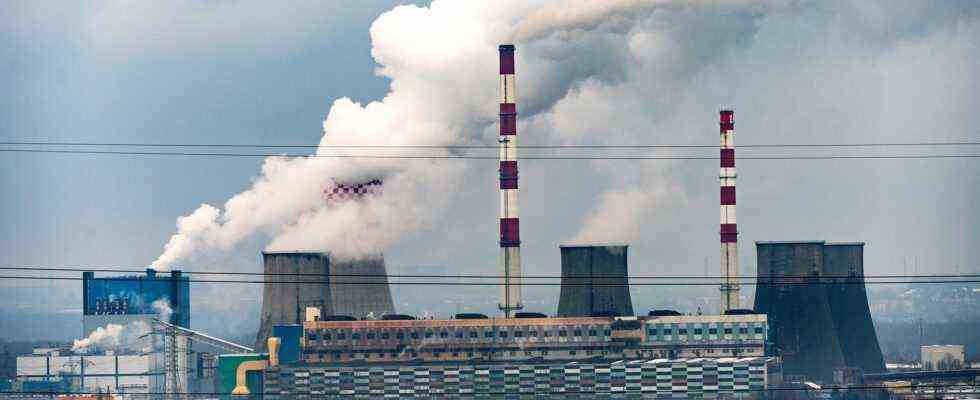Status: 03.11.2021 8:30 p.m.
Coal is still Poland’s number one energy supplier. While the conservative government in the country is only gradually realizing how urgent the energy transition is, it is already being exemplified by a small town in central Poland.
If you are looking for Konin on the map, you have to zoom in quite a bit. The small town in central Poland is a Polish cliché in many ways: in the center a rectangular old town market, on the outside facing plate buildings – and a coal-fired power station.
Poland’s most important source of energy has shaped the city. Of the 70,000 people who live here, 20,000 once worked for the power plant. Today there are – directly and indirectly – only five and a half thousand. But the new era has begun in Konin, explains Mayor Piotr Korytkowski.
“Throughout 2019 we consulted with the residents and also with NGOs. And the residents decided that they want to live in a green, ecological city – but also in a city that continues to be associated with the energy industry. “
A city shows how it can be done
One year after the Polish President Andrzej Duda declared on the sidelines of the climate summit in Katowice that Polish coal would be sufficient for the next 200 years, the people in Konin have set the course in a different direction. “Konin – this is where the energy flows” is now the slogan for the green urban development plan.
Maciej Sytek heads the local “Regional Development Agency”. He says, first of all, they are relying on renewable energies, i.e. wind turbines and solar panels. You have over 7,000 hectares that are intended for this. Second, they want to further develop electromobility. They don’t want to compete with Audi or VW, but they want to attract battery producers. And the third factor is hydrogen, he says.
It has to be faster
Part of the power plant in Konin already works only with biomass. Technology for hydrogen processing is currently being procured. The other, the coal part, is to be shut down by 2030 – 19 years before Poland’s planned national coal phase-out. Prime Minister Mateusz Morawiecki is now also affirming that things have to go faster at the climate summit in Glasgow – but not without conditions, as he explains on the sidelines of the summit.
In order for Poland to be able to achieve the ambitious climate targets in a manner comparable to other countries, we must be supported with the appropriate means. At the same time, however, there must be no blackmail for other elements of European politics.
Poland needs the EU money
What is meant is the dispute over Poland’s rule of law and the EU Commission’s concern about the independence of the Polish judiciary. Brussels is therefore holding back billions from the Corona aid fund, at the same time the ECJ has imposed a fine of millions.
In Konin City Hall, this is being watched with growing concern. Because the energy transition on a small scale depends on 450 million euros in funding – from the EU.
And it is making progress: the energy transition in Poland
Martin Adam, ARD Warsaw, November 3, 2021 6:55 p.m.

